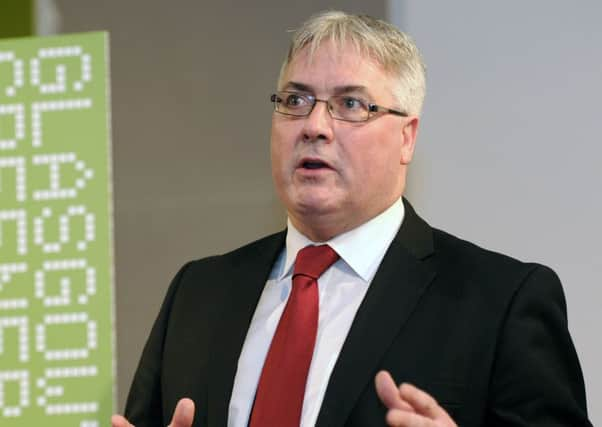Leaders: Thoughtful solutions to council funding crisis


Although the Scottish Government’s funding settlement has reached a conclusion, it could never be said to be amicable. Yesterday’s meeting of Glasgow City Council to ratify its budget for the next two years was an instructive example of the ongoing hostilities.
A gathering tasked with charting the future course of Scotland’s biggest city repeatedly descended into bouts of politicking only too familiar to those who have followed the terse toing and froing of recent weeks and months.
Advertisement
Hide AdAdvertisement
Hide AdFrank McAveety, the leader of the Labour-led administration, condemned the “double whammy” of cuts his administration has been forced to endure at the hand of Holyrood and Westminster, but he reserved the lion’s share of his wrath for the former. The £130 million shortfall facing the council, he insisted, was “a direct result of the Scottish Government’s budget cuts”.
Predictably, SNP councillors took a different view, with group leader Susan Aitken insisting the “real threat” was London’s reduction of Scotland’s budget.
Such stances are scarcely surprising. Labour’s powerbase in Glasgow knows fine well that by condemning the Scottish Government’s financing of local authorities, it may well damage the SNP’s vote in May’s Scottish Parliament elections.
But after all the acrimony, the budget approved by the council shows some thoughtful solutions to a funding crisis that is only likely to get worse before it gets better.
The headline announcement that 1,500 jobs are to be cut will not, the administration says, be achieved through compulsory redundancies, but rather natural wastage and the redeployment of staff so that “services have the workforce they need.”
The reductions elsewhere focus on sensible efficiencies, such as reducing the frequency of grass cutting and hedge trimming, a strategy that stands to save £1.5m.
Naturally, the scale of the savings drive means there are contentious cuts ahead. Its decision to end funding for 100 Police Scotland officers in the city will draw criticism, while the culling of grants totalling £6.15m to third-sector organisations risks impacting the city’s most vulnerable citizens.
Factor in the fact the council is to double the cost for schoolchildren who attend breakfast clubs and there can no doubt these decisions will be keenly felt by hardworking families already struggling to make ends meet.
Advertisement
Hide AdAdvertisement
Hide AdImportantly, however, Mr McAveety is adamant that the axe will not fall on vital frontline services, with the council committed to investing £100m in schools and community facilities over the next five years with an increased capital investment fund.
The administration also deserves credit for pruning its spending further by identifying £10m of savings in procurement costs by renegotiating its contracts and reviewing how its buys in goods and services.
The parlous state of local government finances means there no easy choices but these thoughtful responses to an unprecedented crisis should be welcomed.
Leaks reveal scale of IS threat
The tens of thousands of leaked documents containing the personal details of those who have enlisted to join IS in its global terror campaign is striking for several reasons.
It may seem incongruous, for instance, to discover that an extremist organisation that wages bloodshed has an HR department, but the paperwork – stolen by a former member of the Syrian Free Army who joined IS but became disillusioned – reveal just that.
Recruits, the documents show, are assessed on various categories, such as their “level of obedience,” “level of sharia understanding” and previous “jihadist experience”.
There is something faintly ludicrous about the administrative work that underpins a worldwide terror campaign, but we ought not to be surprised. From filming their horrific killings and spreading their message of evil on social media networks, IS know fine well the influence of modern communications methods on their propaganda and recruitment drives. The scale and depth of its HR operation offers further demonstration of the organisation and commitment at the heart of this group.
Fortunately, the fastiduous nature of the organisation’s bookkeeping could help lead intelligence services directly to some of the individuals fightings for IS, with the cache of documents peppered with the personal details of several British nationals.
Advertisement
Hide AdAdvertisement
Hide AdUltimately, however, the leaked papers underline the fact we cannot underestimate the lengths IS will go to in order to destroy our way of life. Its murderous campaign is indiscriminate, but it is also carefully orchestrated. Combating it is one of the greatest challenges facing the western world.